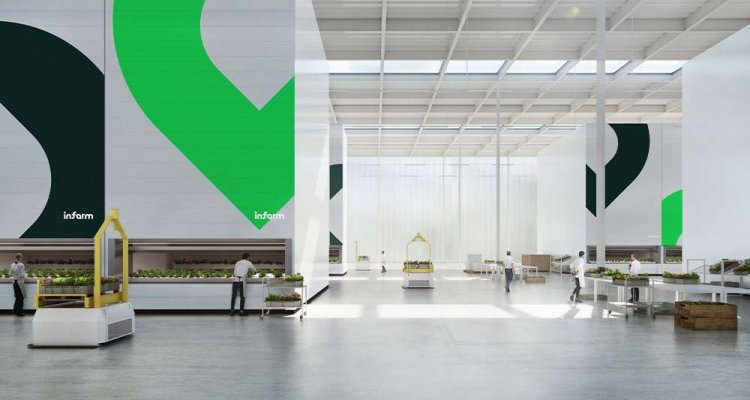
News
WUR announces collaboration on crop research with Infarm
Infarm, the world’s largest cloud-connected vertical farming network, is partnering with Wageningen University & Research (WUR) to study and evaluate how to optimize production while maximizing flavor, nutrition and yield of vertically grown hydroponic tomatoes. As part of the collaboration, Infarm will cover the total costs necessary to complete three interrelated projects over the next four years, funding two PhDs and one post-doctoral researcher based at WUR. Additionally, Infarm’s Crop Genetics team will establish a base on the Wageningen Campus.
Vertical farming is a form of indoor cultivation in which crops are grown under controlled conditions in stacked growing layers, for example in empty office blocks or factory halls. The production takes up considerably less land and ensures an extremely efficient use of water and nutrients. Because cultivation is possible everywhere, the number of transport kilometres from producer to consumer is minimal. Moreover, diseases and plagues are literally kept at bay, which means that crop protection products are no longer necessary. Infarm has already set up more than 1400 vertical farms in North America, Asia and Europe. The company now grows more than 75 crops.
Improving yield and quality
“This pioneering research program undertaken with Infarm will lead to new knowledge of plant-environment interactions, plant physiology, mathematical modelling, sensor technology” said Prof. Dr. Leo Marcelis, lead investigator and head of WUR’s chair group Horticulture and Product Physiology. “For Wageningen University & Research, this partnership with Infarm is a fantastic opportunity to operationalize experimental results, as the research environment represents the growth environment. Therefore, the data and insights which Infarm and WUR gather will be applicable to immediately improve the yield and quality of tomato harvests, while conserving resources like water and energy, with huge implications for the vertical farming industry as a whole.”
Cloud connected network
Infarm has already established a cloud connected network of more than 1,400 vertical farms in stores and Infarm Growing Centers in North America, Asia and Europe. “Infarm is committed to using the billions of data points generated by our cloud-connected farming network to rapidly expand our catalogue of saleable crops and grow the consumer’s full fruit and vegetable basket,” said Infarm’s Co-founder and Chief Technology Officer Guy Galonska.
- Unfortunately, your cookie settings do not allow videos to be displayed. - check your settings
“We recognize that tomatoes and other fruiting crops grown locally and sustainably represent a huge growth opportunity for both Infarm and the vertical farming industry. By partnering with the Horticulture & Product Physiology chair group at WUR, Infarm plugs into the center of global innovation for horticultural research. In close collaboration with researchers at WUR, Infarm’s Crop Science team will identify ways to reduce overall costs while improving the quality of tomato harvests in Infarm’s Growing Centers. The goal is to offer consumers premium quality tomatoes with better taste, more diversity and higher nutritional value at an affordable price, grown locally, year-round.”
Three projects
The ambitious research program Infarm and Wageningen University & Research signed consists of three interlinked research projects, each overseen by a PhD or post-doctoral researcher based at WUR. The work uses state-of-the-art sensors and scanners to evaluate the growth rate, health and nutrient content of the tomatoes. Two projects will examine the efficiency of light interception and distribution of tomatoes growing in a hydroponic farming system using an innovative 3D scanning procedure. Looking at a variety of factors such as the physical properties of the tomatoes and the optimum amount of light, these interventions will enable Infarm to scale up its tomato production in its large-scale farming units on a global level to meet consumer demand for fresh tomatoes year-round.